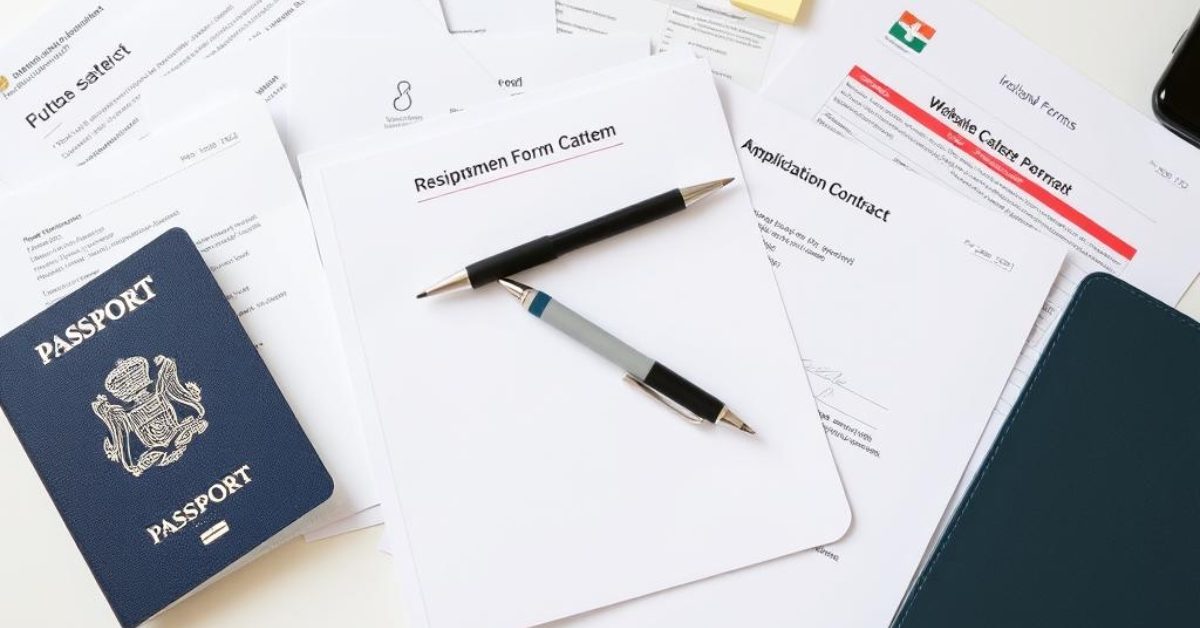Ireland has become a top destination for international students seeking quality education and promising career opportunities. Many students aspire to extend their stay and obtain permanent residency after completing their studies. This comprehensive guide outlines the pathways, requirements, and step-by-step process to secure PR in Ireland after study, helping you navigate this important transition with confidence.
Understanding PR in Ireland: An Overview
Permanent Residency in Ireland, officially known as Long-Term Residency status, allows non-EU/EEA nationals to live and work in Ireland without time restrictions. Unlike temporary visas that require regular renewal, PR provides long-term stability and serves as a stepping stone toward Irish citizenship. The process involves transitioning from student status to work permit holder and eventually to permanent resident.
“Securing PR in Ireland after study requires careful planning and understanding of the immigration pathways. The process typically takes 5 years of legal residency, though there are exceptions for certain skill categories.”
For international students, the journey to PR begins with your studies and continues through employment opportunities that allow you to meet the residency requirements. Let’s explore the step-by-step process and eligibility criteria to help you plan your path to permanent residency in Ireland.
Step-by-Step Process to Obtain PR in Ireland After Study

Securing permanent residency in Ireland after completing your studies involves several key stages. Following this structured approach will help you navigate the process efficiently:
Step 1: Study in Ireland with a Valid Student Visa
The foundation of your PR journey begins with studying in Ireland on a valid student visa. International students can apply for two types of student visas:
- C Study Visa: For courses less than 3 months in duration
- D Study Visa: For courses longer than 3 months (most common for degree programs)
To obtain your student visa, you’ll need to demonstrate English language proficiency through tests like IELTS or TOEFL. You’ll also need to register with the Garda National Immigration Bureau (GNIB) for a residence permit if you plan to stay longer than 90 days, paying a registration fee of approximately €300.
Step 2: Gain Work Experience During Your Studies
Ireland allows international students to work part-time (up to 20 hours per week) during the academic year and full-time (up to 40 hours per week) during scheduled breaks. This opportunity serves multiple purposes:
- Helps finance your education and living expenses
- Builds valuable work experience in the Irish job market
- Creates professional connections that may lead to post-graduation employment
- Develops skills relevant to your field of study
High-Demand Industries for International Graduates
Focusing your internship or part-time work in high-demand sectors can significantly improve your chances of securing post-study employment and eventually PR. Some of the most promising industries include:
Technology Sector
- Software Development
- Data Analytics
- Cybersecurity
- Cloud Computing
Healthcare & Pharmaceuticals
- Medical Research
- Pharmaceutical Manufacturing
- Healthcare Services
- Biotechnology
Financial Services
- FinTech
- Banking
- Insurance
- Financial Analysis
Engineering & Manufacturing
- Mechanical Engineering
- Electrical Engineering
- Manufacturing Technology
- Quality Assurance
Step 3: Obtain a Post-Study Work Permit
After completing your studies, you can apply for Ireland’s Third Level Graduate Scheme, which allows you to remain in Ireland for 12-24 months (depending on your qualification level) to seek employment. Once you secure a job offer, you’ll need to apply for one of these work permits:
This permit is designed for highly skilled professionals in occupations with labor shortages. Benefits include:
- Valid for 2 years initially
- Faster path to PR (possible after just 2 years)
- Minimum salary requirement: €32,000-€64,000 (depending on occupation)
- Immediate family reunification
General Employment Permit
This permit applies to most other occupations not covered by the Critical Skills list. Key features include:
- Valid for 2 years initially
- Renewable for up to 5 years
- Minimum salary requirement: €30,000
- Labor market needs test required (with some exceptions for graduates)
The application fee for these permits ranges from €500 (for permits up to 6 months) to €1,000 (for permits up to 2 years). Your employer typically initiates this application process with the Department of Enterprise, Trade and Employment.
Step 4: Extend Your Work Permit
To meet the residency requirements for PR, you’ll need to extend your work permit beyond its initial validity period:
- Critical Skills Permit holders: After 2 years, you can apply for a Stamp 4 permission, which allows you to work without an employment permit for 2 years (renewable).
- General Employment Permit holders: You can renew your permit for up to 5 years total, after which you may apply for Stamp 4 permission.
Important: To renew your work permit, you must maintain continuous employment and meet the minimum salary requirements. Apply for renewal at least 12 weeks before your current permit expires to avoid gaps in your legal status.
Step 5: Apply for Permanent Residency
After legally residing in Ireland for 5 years (or 2 years with a Critical Skills permit in some cases), you can apply for permanent residency. The application process involves:
- Completing the Long-Term Residency application form
- Gathering all required documentation
- Submitting your application to the Immigration Service Delivery
- Paying the application fee (€500) upon approval
- Registering your PR status with your local immigration office
Once approved, your PR status is valid for 5 years and can be renewed. After holding PR status for an additional period (typically 5 years), you may be eligible to apply for Irish citizenship through naturalization.
Eligibility Requirements for PR in Ireland
Meeting the eligibility criteria is crucial for a successful PR application. Here are the key requirements you must satisfy:
| Requirement | Details |
| Residency Duration | Minimum 5 years of legal residency in Ireland (2 years in some cases for Critical Skills permit holders) |
| Immigration Status | Valid Stamp 1 or Stamp 4 permission throughout your stay |
| Employment Status | Currently employed with a valid work permit (self-employed applicants are not eligible) |
| Character Assessment | Good character with no criminal record or immigration violations |
| Continuous Residency | No significant gaps in your residency period |
| Financial Stability | Evidence of financial self-sufficiency without reliance on social welfare |
Is It Easy to Get PR in Ireland After Study?

This is one of the most common questions among international students considering Ireland as their study destination. The answer depends on several factors that influence the complexity and success rate of PR applications.
Success Factors and Challenges
Favorable Factors
- Ireland’s growing economy creates demand for skilled workers
- Graduates from Irish institutions have simplified work permit processes
- Critical Skills pathway offers faster PR route (potentially 2 years)
- Clear, transparent requirements compared to some other countries
- No points-based system like Canada or Australia
- Strong tech, pharmaceutical, and financial sectors with ongoing talent needs
Challenges
- 5-year residency requirement for most applicants
- Need to maintain continuous employment
- Minimum salary thresholds must be met
- Processing times can be lengthy (6-8 months)
- Competition for jobs in certain sectors
- Self-employed individuals are not eligible
Success Rates and Statistics
While the Irish government doesn’t publish specific approval rates for PR applications, the process is generally considered more straightforward than in countries with complex points-based systems. Your chances of success depend largely on:
- Your field of study and its alignment with Ireland’s skills needs
- Your ability to secure and maintain qualifying employment
- Careful documentation and compliance with all requirements
- Timing your application correctly to avoid status gaps
“Compared to countries like the US, Canada, or Australia, the Irish PR process is relatively straightforward with clear requirements. The key challenge is not the application process itself but securing and maintaining qualifying employment for the required period.”
Factors Influencing PR Approval
Several key factors can significantly impact your chances of PR approval:
Consistent employment in a relevant field with proper documentation of all positions held is crucial. Gaps in employment can negatively impact your application.
Skill Category
Those working in Critical Skills occupations have a significantly easier path to PR, with potentially shorter waiting periods and higher approval rates.
Documentation Quality
Complete, well-organized documentation that clearly demonstrates your eligibility is essential for a smooth approval process.
Required Documents for PR Application

Preparing a complete and well-organized documentation package is crucial for your PR application. Here’s a comprehensive list of the documents you’ll need to submit:
| Document Category | Required Items | Special Notes |
| Personal Identification |
| All pages with immigration stamps must be included |
| Employment Documentation |
| Employment letters should detail your position, salary, and duration of employment |
| Residency Proof |
| Documents should cover your entire residency period to demonstrate continuity |
| Educational Records |
| Include evidence of your study period in Ireland |
| Financial Evidence |
| Demonstrates financial stability and tax compliance |
| Additional Documents |
| Police certificates may be required from all countries where you’ve lived for 6+ months |
Document Organization Tip: Organize your documents chronologically within each category and include a cover letter with a detailed index of all submitted materials. This professional approach can expedite the processing of your application.
PR Application Process and Timeline
Understanding the application process and typical timeline will help you plan effectively and avoid unnecessary delays. Here’s what to expect when applying for PR in Ireland:
Step-by-Step Application Procedure
- Prepare your application: Gather all required documents and complete the Long-Term Residency application form available from the Immigration Service Delivery website.
- Submit your application: Send your completed application and supporting documents to:
Long-Term Residence Section
Unit C – Domestic Residence and Permissions Division
Immigration Service Delivery, Department of Justice
13-14 Burgh Quay, Dublin 2, DO2 XK70, Ireland - Application processing: The Immigration Service will review your application, which typically takes 6-8 months.
- Decision notification: You’ll receive a letter informing you of the decision on your application.
- Pay the application fee: If approved, you’ll need to pay the €500 application fee within 28 days.
- Register your PR status: Make an appointment with your local immigration office to register your new status and receive updated documentation.
Processing Times and Expectations
The standard processing time for PR applications in Ireland is 6-8 months, though this can vary based on application volume and individual circumstances. Factors that may affect processing times include:
- Completeness of your application package
- Need for additional verification or documentation
- Seasonal variations in application volume
- Changes in immigration policies or procedures
Important: While your PR application is being processed, you must maintain your current immigration status. Ensure your work permit and residence permission remain valid throughout the processing period.
Benefits of Permanent Residency in Ireland

Obtaining PR in Ireland after study offers numerous advantages that can significantly enhance your quality of life and future opportunities. Understanding these benefits can help you determine if pursuing PR aligns with your long-term goals.
PR holders can work for any employer without needing a work permit. This freedom allows you to change jobs, pursue promotions, or start a new career path without immigration restrictions.
Social Benefits
Access Ireland’s comprehensive social welfare system, including healthcare services, unemployment benefits, and pension schemes on the same basis as Irish citizens.
Education Benefits
Qualify for domestic tuition rates at Irish universities and educational institutions, making further education significantly more affordable.
Family Reunification
Sponsor family members to join you in Ireland, helping you build a life together in your new home country with simplified immigration procedures.
Travel Freedom
Enter and leave Ireland freely without visa concerns. Your PR status remains valid even during temporary absences (though extended absences should be avoided).
Path to Citizenship
After holding PR status for an additional period (typically 5 years), you become eligible to apply for Irish citizenship through naturalization.
Tax Benefits and Financial Advantages
PR status can also offer financial benefits that contribute to your long-term prosperity in Ireland:
- Access to more favorable mortgage terms compared to temporary residents
- Ability to purchase property without restrictions
- Potential tax benefits on income and investments
- Eligibility for certain grants and financial assistance programs
- More stable financial planning due to secure residency status
Alternative Pathways and Special Cases
While the standard route to PR involves working on employment permits for 5 years, there are alternative pathways and special cases that may apply to certain international students:
Critical Skills Fast Track
Graduates working in occupations on the Critical Skills list may qualify for PR after just 2 years instead of the standard 5 years. This accelerated pathway applies to high-demand fields such as:
- ICT professionals (software developers, cybersecurity experts)
- Engineering specialists
- Healthcare professionals (doctors, specialists)
- Financial and business professionals in specific roles
Researcher Hosting Agreements
International students who transition to research positions under Hosting Agreements may be eligible for expedited PR processing after 2 years of residence. This applies to researchers working with approved research organizations in Ireland.
Family-Based Routes
Students who marry or enter into civil partnerships with Irish or EU/EEA citizens may have access to alternative residency pathways that can eventually lead to PR. These routes typically involve:
- Initial residence permission based on family relationship
- Reduced residency requirements in some cases
- Different documentation requirements
Note: Marriage or partnership solely for immigration purposes (marriage of convenience) is illegal and can result in serious legal consequences, including deportation and future entry bans.
Special Considerations for PhD Graduates
Doctoral graduates from Irish institutions often have enhanced opportunities for remaining in Ireland, including:
- Extended post-study work rights (up to 24 months)
- Higher priority for Critical Skills Employment Permits
- Potential research positions with pathways to permanent residency
Common Pitfalls and How to Avoid Them

The path to PR in Ireland has several potential obstacles that can delay or derail your application. Being aware of these common pitfalls can help you navigate the process more successfully:
1. Gaps in Immigration Status
Problem: Any period where you don’t have valid immigration permission can reset your “clock” toward the 5-year residency requirement.
Solution: Always apply for permit renewals at least 12 weeks before expiration. Keep detailed records of all applications and approvals. If changing permit types, ensure there’s no gap between the old and new permissions.
2. Insufficient Documentation
Problem: Missing or incomplete documentation is one of the most common reasons for delays or rejections.
Solution: Create a comprehensive checklist based on official requirements. Organize documents chronologically and include a cover letter that indexes all submitted materials. Consider having your application reviewed by an immigration specialist before submission.
3. Employment Interruptions
Problem: Periods of unemployment can affect your eligibility and reset your residency calculation.
Solution: If changing jobs, try to ensure there’s no gap between positions. If unemployment is unavoidable, consult with immigration authorities about your options for maintaining legal status during this period.
4. Salary Threshold Issues
Problem: Falling below the minimum salary requirements for your permit type can jeopardize your status.
Solution: Ensure your employment contracts clearly state your annual salary. Keep records of all pay increases. If your salary structure includes bonuses or other variable components, make sure these are properly documented.
5. Extended Absences from Ireland
Problem: Spending too much time outside Ireland can affect your residency calculation.
Solution: Keep detailed records of all travel outside Ireland, including dates and reasons. Generally, absences of less than 6 months for legitimate reasons (business, family emergencies) won’t affect your residency calculation, but longer absences might require special consideration.
Frequently Asked Questions
Can I get PR in Ireland immediately after completing my studies?
No, you cannot obtain PR immediately after graduation. You’ll need to first secure employment and accumulate the required residency period (typically 5 years, or 2 years for Critical Skills permit holders). Your time as a student may count partially toward this requirement.
How long does it take to get PR in Ireland after study?
For most international graduates, the process takes at least 5 years of legal residency with appropriate work permits. Those with Critical Skills Employment Permits may qualify after just 2 years. Once you apply, the processing time is typically 6-8 months.
Can my time as a student count toward the residency requirement for PR?
Time spent on a student visa (Stamp 2) is generally not counted toward the residency requirement for PR. The 5-year clock typically starts when you transition to a work permit (Stamp 1) or Stamp 4 permission.
What happens if I lose my job while waiting for PR?
If you lose your job while on a work permit, you typically have a limited period (usually 90 days) to find new employment and have your new employer apply for a work permit. Prolonged unemployment can affect your eligibility for PR, as continuous legal residency is a key requirement.
Can I apply for PR if I’m self-employed in Ireland?
Self-employed individuals are generally not eligible for the standard PR pathway. PR applications typically require employment under a work permit issued by the Department of Enterprise, Trade and Employment. However, there are other immigration options for entrepreneurs and investors.
Is it possible to get PR in Ireland without IELTS or other English tests?
For PR applications, there is typically no specific English language test requirement if you’ve graduated from an Irish institution where instruction was in English. However, English proficiency tests are usually required for initial student visa applications and may be needed for certain work permits or citizenship applications later.
What’s the difference between PR and Irish citizenship?
PR grants you the right to live and work in Ireland indefinitely but doesn’t confer voting rights in national elections or the right to an Irish passport. Citizenship, which you can apply for after additional years as a PR, provides full rights including voting, an Irish (EU) passport, and the ability to work anywhere in the EU without restrictions.
Can my family join me in Ireland once I get PR?
Yes, PR holders can sponsor family members (spouse/partner and dependent children) to join them in Ireland. The process involves demonstrating that you can financially support your family without relying on public funds. Family members will initially receive temporary residence permits that can later be converted to PR status.
Conclusion
Getting permanent residency in Ireland after study takes planning, but it opens the door to a stable and rewarding future. Stay legally compliant, get eligible work, and follow the right steps. Keep updated with official rules, and don’t hesitate to seek expert help if needed. With focus and preparation, settling in Ireland long-term is absolutely possible.

